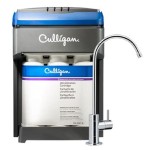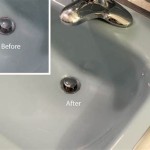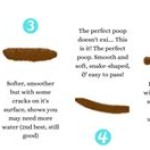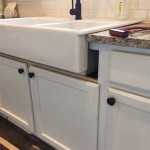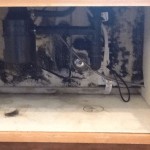Sink Gurgling When Washing Machine Drains: Understanding the Causes and Solutions
A gurgling sound emanating from a sink drain while a washing machine is draining is a common plumbing issue that can be indicative of underlying problems within the drainage system. While seemingly innocuous, this noise often signals more significant concerns related to ventilation, blockages, or improper plumbing configurations. Addressing the root cause promptly is crucial to prevent potential damage, backups, and unpleasant odors within the home. This article explores the reasons behind sink gurgling during washing machine drainage, along with practical methods to diagnose and resolve the issue.
Understanding the Plumbing System and Drainage
To effectively diagnose the cause of sink gurgling, it is essential to understand the basic principles of a residential plumbing system. The primary objective of a drainage system is to efficiently remove wastewater from fixtures like sinks, toilets, showers, and appliances such as washing machines. This process relies heavily on gravity and proper ventilation to ensure a smooth and unrestricted flow. Wastewater travels through a network of pipes, beginning with the drainpipe connected to the fixture, leading to larger branch lines, and eventually converging into the main drain line that exits the house and connects to the municipal sewer system or a septic tank. Each plumbing fixture is typically equipped with a P-trap, a U-shaped pipe section designed to hold water. This water barrier prevents sewer gases from entering the home, maintaining a sanitary environment.
Ventilation plays a critical role in maintaining proper airflow within the drainage system. Vent pipes, usually extending through the roof, allow air to enter the drain lines, preventing a vacuum from forming as water flows. Without adequate ventilation, the negative pressure can siphon water from the P-traps of other fixtures, leading to dry traps and the infiltration of sewer gases. Furthermore, inadequate ventilation can impede the flow of wastewater, causing gurgling sounds and potential backups.
Key Point 1: Identifying Common Causes of Sink Gurgling
Several factors can contribute to a sink gurgling when a washing machine drains. A primary cause is a partial or complete blockage within the drain line. This blockage can restrict the flow of water, creating negative pressure that pulls air through the P-trap of the sink, resulting in the gurgling noise. Common culprits for drain blockages include hair, soap scum, grease, lint, and small objects that inadvertently enter the drainpipes. Over time, these materials can accumulate and solidify, gradually reducing the diameter of the pipe and impeding water flow.
Another potential cause is a problem with the vent system. If the vent pipe becomes blocked by debris, such as leaves, bird nests, or snow, it restricts the airflow necessary for proper drainage. This can create a vacuum in the drain lines, leading to the same gurgling effect as water is pulled from the sink's P-trap. Moreover, if the vent pipe is improperly installed or designed, it may not provide adequate ventilation, contributing to negative pressure and gurgling sounds.
The washing machine itself can also contribute to the problem. Washing machines often discharge large volumes of water rapidly. If the drainpipe is not adequately sized to accommodate this flow, it can create a surge of water that overwhelms the drainage system, leading to negative pressure and gurgling in nearby fixtures. Similarly, if the washing machine’s drain hose is inserted too far into the standpipe (the pipe that connects the washing machine’s drain hose to the drainage system), it can create a siphoning effect, pulling water from the sink’s P-trap. This is because the hose end being submerged can prevent proper air gap for drainage.
Key Point 2: Diagnosing the Source of the Gurgling
Pinpointing the exact cause of the sink gurgling requires a systematic approach. The first step is to observe the behavior of other plumbing fixtures in the house. If other drains are also slow or exhibit gurgling noises, it suggests a more widespread problem, such as a blockage in the main drain line or a vent system issue. If the gurgling is isolated to the sink near the washing machine, the problem is likely located closer to that specific fixture.
A visual inspection of the sink drain and surrounding plumbing is essential. Check the drain opening for any visible debris or obstructions. Inspect the P-trap for signs of leakage or corrosion. If possible, examine the drainpipe leading from the sink to the main drain line. Look for any kinks, sags, or other irregularities that could impede water flow. Furthermore, inspect the standpipe where the washing machine drains for proper installation and potential obstructions. Ensure the washing machine drain hose is not inserted too far into the standpipe.
Checking the vent pipe is crucial, though it often requires accessing the roof. Look for any visible obstructions at the vent opening, such as leaves, branches, or animal nests. If safe to do so, insert a garden hose into the vent pipe and flush it with water to dislodge any potential blockages. To test the vent system indirectly, try running water in the sink while simultaneously flushing a nearby toilet. If the toilet flush causes the sink to gurgle more noticeably, it strongly suggests a ventilation problem.
Using a plumbing snake or auger can help to clear potential blockages in the drain lines. Carefully insert the auger into the sink drain and rotate it to break up and remove any accumulated debris. Exercise caution not to damage the pipes. For more stubborn blockages, consider using a chemical drain cleaner, but always follow the manufacturer's instructions carefully and avoid overuse, as these chemicals can be corrosive and damage the pipes over time. If these steps do not resolve the issue and one lacks the necessary expertise, consulting with a qualified plumber is advisable.
Key Point 3: Implementing Solutions to Resolve the Gurgling
Once the cause of the sink gurgling is identified, appropriate solutions can be implemented. If the problem is a minor blockage in the sink drain, removing the P-trap and cleaning it thoroughly is often sufficient. Place a bucket underneath the P-trap to catch any water and debris, then carefully loosen the slip nuts that connect the P-trap to the drainpipes. Remove the P-trap and clean out any accumulated sediment. Reassemble the P-trap, ensuring the slip nuts are tightened securely to prevent leaks.
For more stubborn blockages in the drain lines, using a plumbing snake or auger is recommended. Insert the auger into the drainpipe and rotate it to break up and remove the blockage. After removing the blockage, flush the drainpipe with hot water to ensure it is clear. If chemical drain cleaners are used, always follow the manufacturer's instructions carefully. Avoid mixing different types of drain cleaners, as this can create dangerous chemical reactions.
If the problem is a blocked vent pipe, clearing the obstruction is essential. Safely access the roof and remove any visible debris from the vent opening. If necessary, use a garden hose to flush the vent pipe with water. Consider installing a vent cap to prevent future blockages from leaves and other debris. If the vent pipe is improperly installed or designed, consulting with a plumber to reconfigure the vent system may be necessary to ensure proper ventilation.
If the washing machine is contributing to the problem, ensuring the drain hose is properly inserted into the standpipe is vital. The drain hose should not be inserted too far, leaving an air gap to prevent siphoning. If the standpipe is too small to accommodate the washing machine's discharge volume, a larger standpipe may need to be installed. Furthermore, consider using a lint trap on the washing machine’s drain hose to prevent lint from accumulating in the drain lines.
Preventive maintenance is crucial to avoid future gurgling problems. Regularly flush the drains with hot water to help dissolve grease and soap scum. Use drain screens in sinks and showers to prevent hair and other debris from entering the drainpipes. Avoid pouring grease down the drain. Periodically clean out the P-traps under sinks and showers to remove any accumulated sediment. By implementing these preventive measures, homeowners can minimize the risk of drain blockages and ensure the proper functioning of their plumbing system.

How To Stop Sink Gurgling When Washing Machine Drains Page 1 Homes Gardens And Diy Pistonheads Uk

Why Does My Sink Gurgle When The Washing Machine Drains

How To Stop Bad Smells And Gurgling From Your Sink Waste

How To Stop Sink Gurgling When Washing Machine Drains Page 1 Homes Gardens And Diy Pistonheads Uk

A Plumber Shows How To Solve Gurgling Noise From Sink Drain

Why Does My Sink Gurgle When Washing Machine Drains Atlanta Ga Plumbers

Washing Machine Drain Pipe Gurgling Plumbing Issue How To Fix The

Washing Machine Draining Causes Sinks And Toilet To Gurgle How Fix

Plumber Gives A Perfect Visual On Why Plumbing Drain Gurgles

Why Your Toilet Gurgles When Washing Machine Drains

